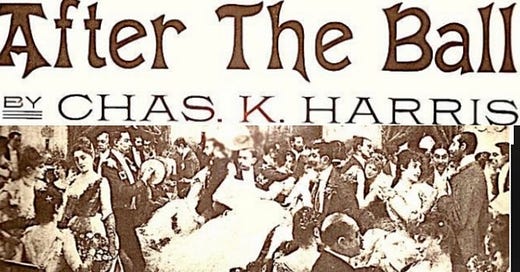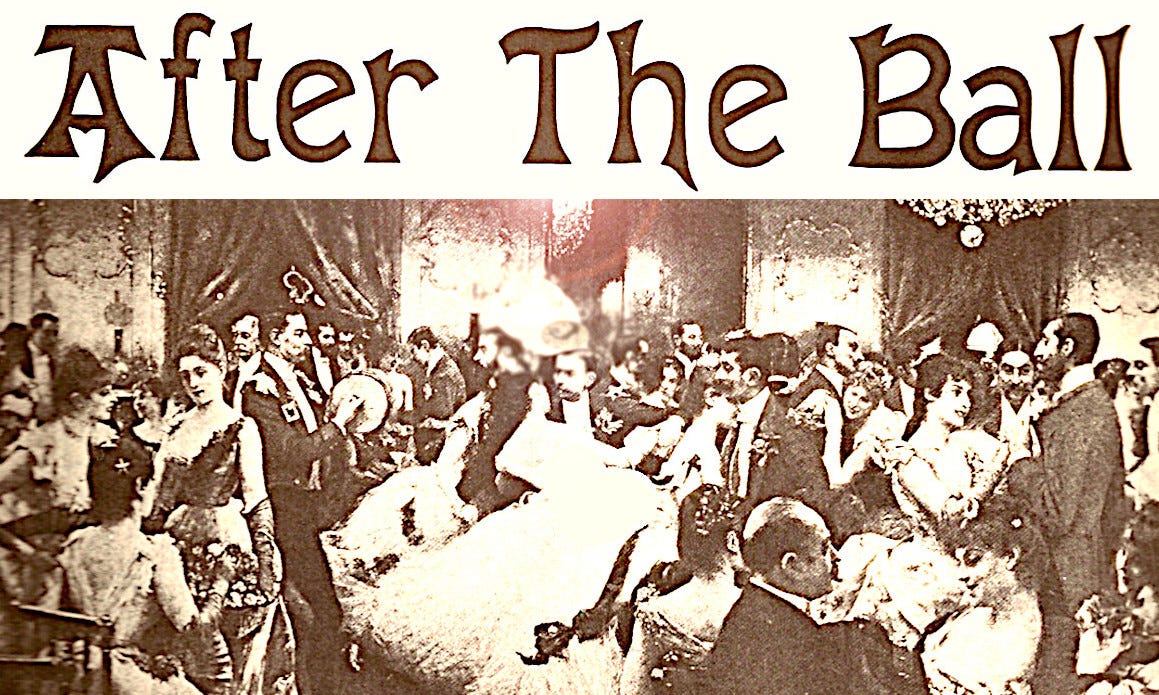THE FIRST MILLION SELLER
THIS IS A COMPRESSED VERSION OF THE FIRST CHAPTER OF MY BOOK 'THE BUSINESS', OUT THIS WEEK IN THE USA, PUBLISHED BY UNBOUND BOOKS
THIS IS HOW BRITAIN GOT STARTED IN THE MUSIC BUSINESS. In 1710, the British parliament passed a law protecting an author’s rights in his written work – the Statute of Anne. A piece of writing, once it had been published, or made public, would remain the author’s exclusive property for fourteen years. This could then be extended for another fourteen years. And because music could be written, it too was given the same legal status.
There was also a proviso that an author had the right to assign his rights in a work providing there was a signed and witnessed contract. So if a music publisher could persuade a songwriter to sign a piece of paper assigning him a song, the publisher would become the owner of the song.
Previously, the only business in music had been the simple one of paying musicians to play and charging people to come and see them. But now music could be owned, just like property. And anyone who owned a piece of music could print copies of it and sell them for whatever price they chose.
The court had created the music industry.
THS IS HOW AMERICA GOT STARTED IN THE MUSIC BUSINESS. It was a British colony. And when it won the War of Independence it kept the copyright law Britain had given it. What pushed the industry forward was not so much the public’s love of music, or the musicians’ love of playing and writing it, but the music publishers’ desire to make money from it. Eventually it was America that kicked the music business into high gear and turned it into a multi-million dollar industry, but it was Britain that started things off.
The first big step was in December 1810 when Samuel Chappell, who had a piano store in Bond Street, signed an agreement with Johann Baptist Cramer, England’s best-known concert pianist and composer. Chappell and Cramer would set up a joint publishing company that would print and sell all of Cramer’s music, including his best-seller, the definitive work on piano technique, ‘84 Studies for the Pianoforte’.
Cramer then wrote to all his musician friends telling them about the new company and asking them to publish their work with it. One of them was Beethoven, who, because he considered Cramer to be the world’s best pianist, let the company publish his new piano concerto, which Cramer named the ‘Emperor’.
Cramer’s contacts brought in top classical composers from all over Europe and Chappell was soon considered to be amongst the top music publishing companies in Britain. But after seven years Cramer decided he was doing more for Chappell than Chappell was doing for him, so he left and set up on his own. In 1834 Samuel Chappell died and in due course the business passed to his son Thomas.
Tom was a moderniser. He wasn’t as stuffy as his father. He wanted to publish popular music as well classical. Popular songs could be engineered into hits more quickly than classical. But it was a tough business.
Publishers fought to get the best songs from the best writers, and then they had to be made popular. Nobody wanted to hear songs they didn’t know so new songs had to be force-fed to the public. The best way was to persuade top ballad singers to feature them in their concerts. To persuade them they were bribed – from the very beginning, that was the nature of the music business. No song was played till someone was paid.
It could be expensive but sales of songs could be huge. The money made from the sheet music of ‘The Last Rose of Summer’ or ‘Darby and Joan’ justified almost any expenditure on promotion. The most famous singer at the time was contralto Dame Clara Butt. After Queen Victoria told her, “I have never liked the English language before but in your mouth it is beautiful,” Boosey gave her a royalty on the sheet music sales of every song she helped promote. (Dame Clara, not the Queen.)
IN AMERICA, by the 1880s, a hundred years after the end of the War of Independence, there had been an influx of immigrants from Europe. Over 250,000 of these were Jews, the majority of them having fled persecution. Although most of these immigrants were well educated, there was little chance of them finding good positions in businesses that already had management in place, but the entertainment industry had vacancy signs all over it. It was new, and there was no one at the top to object to newcomers moving in. It revolved around actors, singers, dancers, writers, and choreographers – all of them quirky, forceful and idiosyncratic. There was no room in entertainment for people who made judgments based on race or class or sexuality; the only thing that mattered was profitability.
Jews came from a non-proselytising culture. They didn’t try to convert people to their way of thinking, nor did they object to other people being themselves – the entertainment business provided them with an ideal opening. And the quickest way in was through songwriting or music publishing.
Aged eighteen, Charles K. Harris lived in Milwaukee and wrote songs that he sold to travelling minstrel shows for a few dollars each. When he wrote a song called ‘After the Ball’, he decided to publish it himself.
He paid five hundred dollars to James Aldrich Libbey, a well-known baritone for the right to put his photograph on the cover of the sheet music and to sing it at a concert that bandleader John Philip Sousa would be attending. Sousa liked the song so much he made an arrangement of it and for the next six months played it once an hour at the 1893 Chicago World Fair where he and his band were in residence. Over twenty-seven million people attended the fair, equivalent to half the population of the USA, and by the end of the year the sheet-music had sold over two million copies, an unheard of amount.
As a writer who’d published his own song, Charles K. Harris took all the money for himself. He’d scammed the system and won. He’d shown what the music business could be if you were clever - a lottery where you could influence the result - exciting, fun, though maybe sometimes a little unethical. But what the hell, if you were lucky it was vastly rewarding.
Who couldn’t enjoy a business like that?
SUBSCRIBE BY LEAVING YOUR EMAIL ADDRESS - YOU GET A WEEKLY PIECE EMAILED TO YOU AND IT’S FREE





Fascinating read Simon. I knew some of the history Queen Ann, Chappell etc but look forward to reading more.
Hope all is well with you. I saw that you met up with Rod and Hellen Gammons recently! Best N
Absolutely fascinating Simon ... I enjoy the 'dip in-dip out' aspect of Substack, but with your posts that really isn't enough for me.
You hooked me, and I'm adding to my bookshelf ... 😄